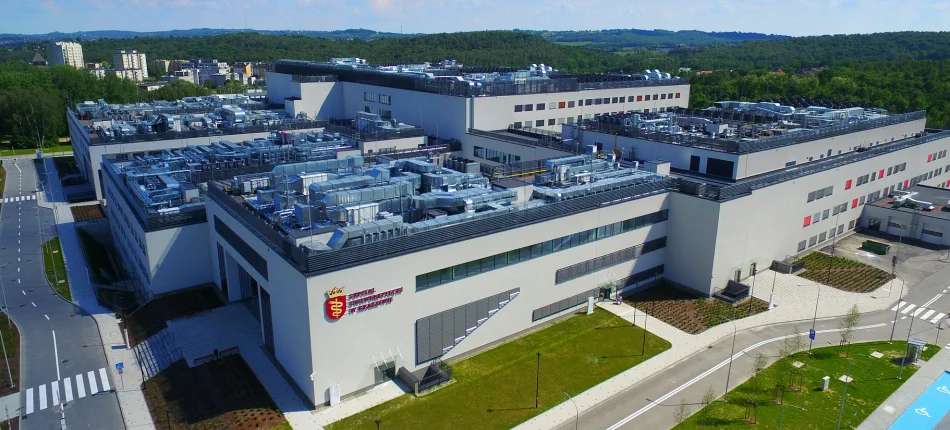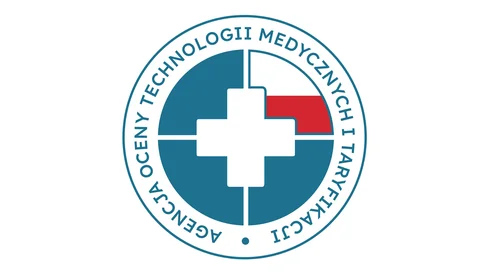UJ CM researchers on the trail of an innovative method for diagnosing hypertension

Published May 18, 2023 10:52

Elevated blood pressure is a major modifiable risk factor for mortality worldwide and can lead to the development of cerebrovascular disease and dementia. Observational and prospective studies, as well as randomized clinical trials of antihypertensive drugs, have shown that hypertension may be causally related to cognitive impairment. At the same time, elevated blood pressure causes long-term changes in specific brain structures. While the links between blood pressure and cognitive function may be mediated by changes in brain structures, the causal nature and exact mechanisms of these links have been difficult to study in the past. Therefore, the identification of specific brain areas mediating blood pressure-dependent cognitive changes is of paramount clinical importance.
Whole-genome studies of the human genome (known as GWAS) enable the identification of genetic tools causally related to a trait, which can be used to accurately study brain regions and cognitive functions, since they are, at least in part, heritable. While randomized clinical trials remain the gold standard for inferring a causal relationship between different clinical traits, approaches to causal inference using genetic tools through Mendelian randomization (MR) are at the intersection of experimental/clinical and observational studies. At the same time, a growing number of comprehensive human genome studies with high statistical power are facilitating the identification of genetic proxies for complex phenotypes, such as blood pressure and cognitive function, which can be used for MR analysis both as causal variables and as effects of the process under study. Importantly, they can provide unique tools to pinpoint specific brain structures and functional parameters that may mediate this relationship. Identifying such brain parameters may identify new predictors of cognitive impairment in hypertensive patients. It will also identify brain regions for subsequent therapeutic and research targeting at the molecular and cellular levels.
Accordingly, the team of Matthew Siedlinski, PhD, and Tomasz Guzik, PhD, developed a triangulation approach to identify brain structures potentially responsible for the effects of blood pressure on cognitive function in humans. First, using MR and nuclear magnetic resonance analysis, they comprehensively mapped the brain structures potentially causally affected by blood pressure in the middle-aged UK Biobank population. Second, the effects of blood pressure on cognitive function in well-characterized human cohorts (COGENT and UK Biobank) were elucidated. Finally, using MR analysis, we identified structures in the brain that accompany the deleterious effects of elevated blood pressure on cognitive function in humans. The pattern of blood pressure-related brain damage using genetic causal inference methods was then verified in an independent, well-phenotyped, prospectively recruited Italian cohort.
Using the aforementioned triangulation approach based on combined observational and genetic inference methods, the deleterious effects of blood pressure on cognitive function were discovered, and for the first time a set of specific brain structures were identified, among the 3935 analyzed, that respond to differences in blood pressure. Some of these structures, including areas of white matter ( anterior corona radiata, anterior thalamic radiation and anterior limb of the internal capsule), may represent target areas of the brain where systolic blood pressure affects cognitive function. Data from a prospectively recruited cohort study were then used to confirm the identified pattern of damage linked by genetic instruments to systolic blood pressure.
While previous attempts to identify brain structures linked to blood pressure were mainly observational, a team of UJ researchers Matthew Siedlinski, PhD, and Prof. Tomasz Guzik, PhD, heading an international consortium, demonstrated a link between blood pressure and a specific set of brain structures using genetic methods of causal inference. However, unlike the observational analysis, they found no evidence of a genetic link between the total volume of hyperintense areas of white matter and cognitive function. While white matter hyperintensity has previously been associated with dementia or Alzheimer's disease, but not with general cognitive function, their findings may suggest that the effects of blood pressure on cognitive function may be mediated by specific and defined regions of white matter, making total white matter hyperintensity quantification a less sensitive indicator of this association in hypertension. It is noteworthy that some of the identified white matter regions are additionally associated with changes in cognitive function in 2054 subjects from the UK Biobank cohort studied observationally over 2-3 years. Although the level of cognitive function at a specific time point may be derived from a variety of factors, the exact course of the effects of specific brain structures, including those identified in the current study, on cognitive function over time should be verified in future large prospective cohort studies.
Importantly, a validation study in an Italian population illustrated a similar pattern of the effects of systolic blood pressure on key brain structures in a relatively small sample of healthy subjects and hypertensive patients who did not show conventional radiological damage on routine magnetic resonance imaging. This is significant because it suggests that these structures may serve as indicators of ongoing brain damage caused by elevated blood pressure. Further confirmation of this important finding will require targeted large-scale MRI studies in hypertensive patients.
Another interesting finding of the study is that structural and volumetric changes in the brain occur mainly in response to the difference between systolic and diastolic blood pressure. Most of the volumetric brain parameters were related to pulse pressure and mutually analyzed SBP and DBP in a multivariate MR approach. The study also confirms the existence of a small, potentially causal, deleterious effect of higher systolic blood pressure and pulse pressure, but not diastolic blood pressure, on cognitive ability in middle age, which may serve as additional evidence regarding the role of hypertension in the development of dementia. Because the various forms of dementia may form a continuous continuum rather than a strict dichotomy between Alzheimer's disease and vascular dementia, the fluid intelligence scale used in the study may be best suited to assess the complexity of this pathological condition. MR studies linking blood pressure to cognitive function have provided contradictory results in previous years, probably because of the different genetic toolkits used as instrumental variables for blood pressure indices. The study by the team of Dr. Mateusz Siedlinski and Prof. Dr. Tomasz Guzik included a much larger set of genetic instrumental variables specific to blood pressure from the UK Biobank and ICBP consortium, as well as cognitive function studied by the COGENT consortium. The lack of effect of diastolic blood pressure on cognitive function observed in the univariate analysis is intriguing because higher diastolic blood pressure became protective after adjusting for the effect of systolic blood pressure. Combined with the inverse effects of systolic and diastolic blood pressure on many brain parameters and structures identified in the multivariate MR analysis, this may reflect the effect of arterial stiffening on increased pulsation in the cerebral microcirculation along with increased penetration of pulse waves moving forward and backward.
In conclusion, the study by the team of Dr. Matthew Siedlinski and Prof. Dr. Tomasz Guzik is the first to integrate blood pressure parameters, cognitive function and imaged brain structures in a comprehensive, genetic and observational manner. While cognitive function and volumetric parameters of brain structures appear to be mainly related to systolic blood pressure and pulse pressure, systolic blood pressure may additionally affect characteristic brain structures that show genetically-defined effects on cognitive function in humans and may serve as new diagnostic and therapeutic targets for cognitive disorders associated with hypertension.
Dr. Matthew Siedlinski
Department of Internal Medicine and Rural Medicine
Faculty of Medicine, Jagiellonian University CM















